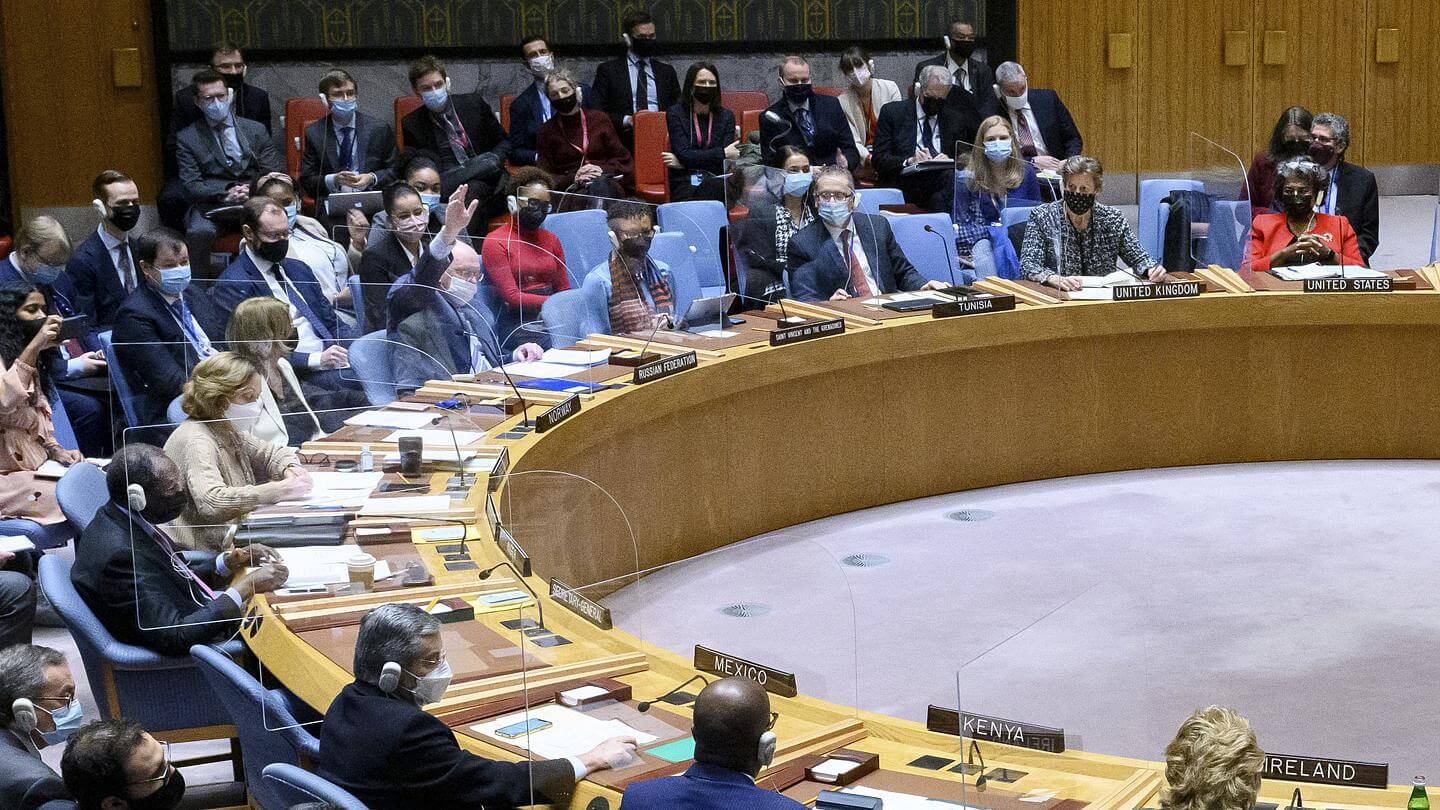On Monday, India and Russia voted against adopting a draft resolution by the United Nations Security Council (UNSC) on climate change. The UNSC draft resolution was written by Ireland and Niger and called for including information on the security risks of climate change in the Council’s policy on managing conflicts, political missions, and peacekeeping operations. The resolution presented climate change as a risk to international peace and security and also sought to integrate climate security risks with the United Nations’ conflict-prevention strategies.
#Russia, #India vote no, #China abstains on #UN Security Council resolution on #climatechange. The proposal called for “incorporating information on the security implications of climate change” into the #UNSC’s strategies for managing conflicts. https://t.co/uSpQgONW5n
— The World's Troubles (@worldcrisis2013) December 14, 2021
The resolution was backed by 12 of 15 members, with India and Russia blocking the resolution and China abstaining from the vote. Additionally, of the UN General Assembly’s 193 member countries, 113 supported the draft resolution.
India’s permanent representative to the UN, TS Tirumurti, said, “Today’s UNSC Resolution attempts to undermine the hard-won consensus which we reached in Glasgow. This resolution would only sow the seeds of discord among the larger UN membership.”
In addition, he said decisions concerning climate change should be taken with the wider international community, which is represented in the United Nations Framework Convention on Climate Change (UNFCC) and not at the UNSC. He added, “Ironically, many of the UNSC members are the main contributors of climate change due to historical emissions. If the Security Council indeed takes over the responsibility on this issue, a few states will then have a free hand in deciding on all climate-related issues. This is clearly neither desirable nor acceptable.”
Furthermore, Tirumurti said the draft resolution sends a wrong signal to developing countries, as it neither addresses their concerns nor holds developed countries responsible for meeting their under commitments under the UNFCC and instead divides the countries under the guise of security.
#IndiainUNSC
— India at UN, NY (@IndiaUNNewYork) December 13, 2021
Today, India🇮🇳 voted against a #UNSC draft resolution that attempted to securitize climate action and undermine the hard-won consensual agreements in Glasgow.
Watch Explanation of Vote by Permanent Representative @ambtstirumurti ⤵️ pic.twitter.com/jXMLA7lHnM
Tirumurti thus presented an alternate strategy that calls on developed countries to provide $1 trillion in climate financing to developing countries. Decades ago, developed countries committed to contributing to a climate fund of $100 billion every year to support climate action in developing countries. However, they have failed to fulfil their commitment. “This is particularly important to recognise because today’s attempt to link climate with security really seeks to obfuscate lack of progress on critical issues under the UNFCCC process,” Tirumurti said.
Moreover, Tirumurti defended India’s commitment to combat climate change and said the country would always support “real climate action and serious climate justice.” He also underlined Indian Prime Minister Narendra Modi’s ambitious climate action vision unveiled at COP26, which includes increasing non-fossil energy capacity, using renewable energy to meet energy requirements, reducing carbon emissions and the carbon intensity of the economy, and achieving net-zero emissions by 2070.
Likewise, Russia’s Permanent Representative to the UN, Vassily Nebenezia, justified Moscow’s lack of support by saying, “Positioning climate change as a threat to international security diverts the council’s attention from genuine, deep-rooted reasons of conflict in the countries on the Council’s agenda.” “This is convenient for those countries that are actively helping these conflicts to come into being or who have waged military activities in diversion from the Security Council’s mandate or simply don’t want to provide the necessary help to developing countries,” he added.
Similarly, Chinese ambassador Zhang Jun said, “What the security council needs to do is not a political show.”
On the contrary, countries supporting the draft resolution said it presented a fair and reasonable step forward on an issue of existential importance. Concerning this, Irish Ambassador Geraldine Byrne Nason said, “Today was an opportunity for the council to recognize, for the first time, the reality of the world that we are living in and that climate change is increasing insecurity and instability.” “Instead, we have missed the opportunity of action, and we look away from the realities of the world that we are living in,” the Ambassador added.

